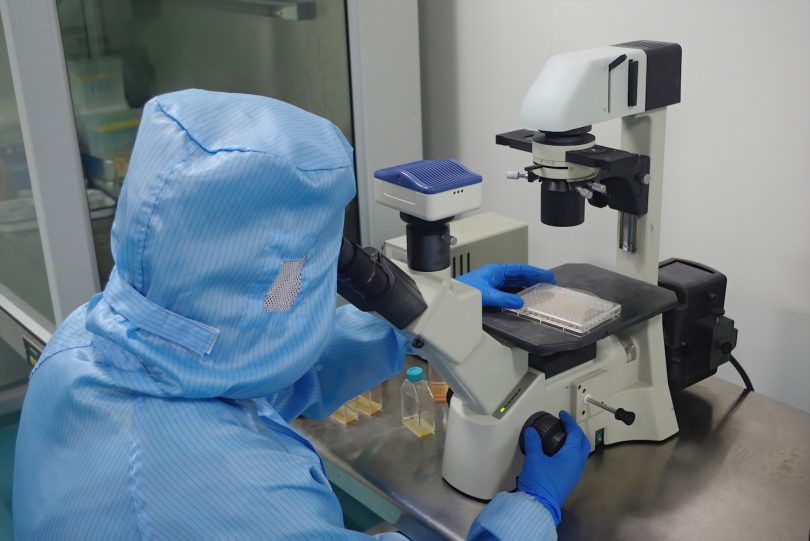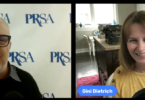Each September, PRSA celebrates Ethics Month, featuring programs presented by the PRSA Board of Ethics and Professional Standards (BEPS). This year’s theme is “Doing the Right Thing.” Please join the discussion via #PRSAChat and #EthicsMonth, and follow along with our ethics-related blog posts, webinars and Twitter Chats throughout the month.
When the word coronavirus first came on the scene at the Veterans Health Administration (VHA) earlier this year, we did what most hospitals do in a time of crisis, we stood up the Office of Emergency Response (OEM) and went to work.
As a nationwide health care system, OEM was able to pull assets from across the country to develop a plan, and they worked with the VHA Office of Communications on both internal and external PR efforts.
The primary goal of the operations plan (which is still active) is to protect veterans and staff from acquiring COVID-19 infection by leveraging technology, communications and health care.
In the plan, the Department of Veterans Affairs (VA) opted to implement a system where VA facilities operate as two separate “zones” (Standard and COVID-19) for inpatient care. VA also chose to offer most outpatient care through telehealth services.
We hoped to minimize the risk of infection, support expansion to meet an increasing need for COVID-19 services and provide veterans who were not exposed to consistent access to VA care.
Since communication was brought in early on, the team was able to create a Health Consequence Infection (HCI) SharePoint site. There, we were offering social media messages and supporting graphics, stories for use in facility newsletters, news releases, and overall talking points for senior leaders, veterans service organizations, congressional members and others.
Our internal communications team provided communications support for our facilities across the country. With more than 350,000 employees, 156 facilities, thousands of outpatient centers of care, they provide care to nearly 9 million veterans nationwide. With such a wide-ranging group to reach, we wanted to ensure that we did so ethically and honestly during the standup.
So we opened one-way and two-way communications forums so we could communicate and hear from the field. Communication avenues included:
- Daily C19 communication flow calls with nearly 400 participants. Set in a “radio show” format, we opened the calls with leading news from VHA’s COVID-19 cases and information from the top. We then took a look at our “World in Data” statistics to keep an eye out on the transmission worldwide. We shared social listening reports from FEMA. We provided weekly training sessions to ensure that public affairs officers could hone their skills. We responded to dozens of queries received during the calls, both audibly and in the chat function.
- A new COVID-19 Insider page on the VHA intranet, chock-full of communications materials.
- Daily Joint Task Force meetings for the integration of communication between all three administrations (Veterans Health, Veterans Benefits and National Cemetery) along with the Office of Public and Intergovernmental Affairs, under the political appointee realm. This meeting helped us cover external, internal, congressional affairs, media and others in between.
- Weekly analysis reports of metrics reached across the organization to help highlight our communications efforts and hold us accountable.
The combined efforts led to improved communications in a short amount of time in the middle of the evolving public health pandemic.
We were fortunate enough to have Jim Lukaszewski, APR, Fellow PRSA, present “Ethical and Unethical Crisis Management” during one of the “Wednesday Wisdoms,” as we called the sessions. His guidance on the importance of morality, ethical conduct and transparency was critical to framing our efforts.
Because we had the two-way communications channel set, we learned that there were some shortages of protective personnel equipment and were able to provide some communications support. We also alerted VHA leadership as to what we were hearing, and they were able to respond.
Thanks to our PRSA training, the values of ethics came into play. We were advocates of the public interest in responding and communicating about the pandemic. We were honest, even when it meant tough calls, such as the PPE shortage. We were developing our expertise with our “Wednesday Wisdom” pieces of training. We were independent in providing objective counsel and highlighting our accountability. We displayed loyalty in servicing our employees and our patients. We demonstrated fairness by listening to and respect all opinions and supported them by providing answers in a timely fashion.
I retired from the VA after working in this role for four months. At my virtual retirement reception, senior leaders, public affairs officers from across the country and my colleagues shared their gratitude for my role in this team effort.
Paula Pedene, APR, Fellow PRSA, is CEO/owner at Paula Pedene & Associates. PRSA named Pedene as Public Relations Professional of the Year in 2015.
Photo credit: shutterstock







